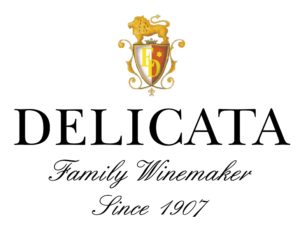Wine Advice by Algorithm
Who would have thought that the role of the friendly wine adviser assisting shoppers to find the right wine for the right occasion might soon get replaced by a machine powered by an algorithm?
I remember all too well my early start in the wine trade as a young supermarket wine adviser chatting with customers on the shop floor and forging friendships whilst deciphering their drinking preferences. Not artificial intelligence, but a fair dose of empathy combined with budding wine expertise helped me crystallise their wine likes and dislikes – of which clients often weren’t mindful themselves – into names of wines, specific varieties or blends, ideal regions and precise vintages which they would most likely like best.
In the U.S.A. the wine shop assistant’s advisory role is soon to be challenged by a robotic mind or computer programme that runs an exact algorithm.
The idea is being put into practice by start-up company Verve Wine which will go online in December selling about 1000 different labels for delivery throughout the States. The concept and new website www.vervewine.com is the brain child of Dustin Wilson, one of only 230 Master Sommeliers in the world, who wants to revolutionise the way people shop for wine.
Actually, the site will provide wine options in a similar way to how major online shopping sites provide recommendations for someone’s next purchase based on the user’s individual recorded online buying history.
As to make the algorithm more efficient in determining which bottle suits one’s likings best, would-be buyers ideally start by visiting the brick-and-mortar front of the website store located in Manhattan, New York.
Here, wine lovers would sit down with a company sommelier to complete a questionnaire and a standard wine tasting session. The results are then fed into and processed by the software programme, which will assign values to the logged preferences of each individual regarding the wines’ alcoholic strength, amount of tannin, dryness, sweetness and the degree of oakiness and many other flavours.
Customers who place an order through Verve Wine’s website are encouraged to rate each bottle bought since each rating will allow it to make more tailored suggestions for future orders. Feedback helps refine the choices and, theoretically, the more one shops and drinks wines on offer by the Internet retailer, the better the recommendations get.
Dustin Wilson believes choosing wine by numbers over the Internet is the way forward to reel in millennials, who now drink almost half the wine consumed in the U.S.A. and are “more likely to trust an algorithm than a human”, according to Wilson.
Will wine advice by algorithm catch on?
I’m not ruling it out entirely. After all, mathematics asserts itself already extensively in human affairs. The public doesn’t seem to mind machines calculating our movements, spending patterns and desires and predicting our potential as workers, customers or lovers.
I have my reservations, though. Research seems to confirm my intuition that nothing beats picking up a tactile bottle to take home. Being able to cradle a bottle of wine in a shop holds a promise of a personal experience which online shopping can’t replicate.
“Millennials enjoy the experience of physically choosing the wine in the retail outlet,” said Dr Marianne McGarry Wolf, head of the Wine & Viticulture department at California Polytechnic State University. They like to buy wine that they have an “experiential connection with”, a bottle they’ve tasted in the past or one recommended by a person they trust.
I’m not wary of robotic powers and their widespread use in our everyday lives. But, isn’t choosing a wine a ritual which is also about people, undertaken together or at least with the company and pleasure of others in mind?
Detrimental to business or not, the camaraderie inherent to wine is zeroed out in the whole new brave virtual wine world by numbers.
This article by Georges Meekers appeared first in the Times of Malta, 18 November 2016.

